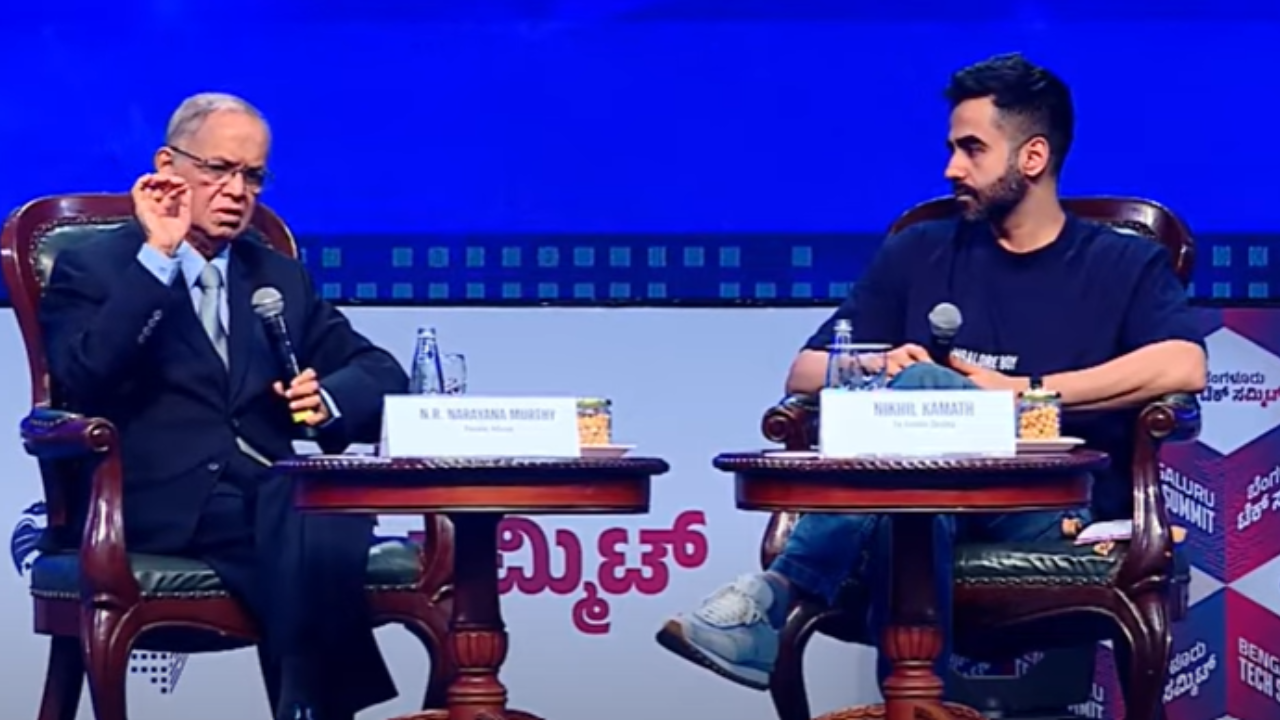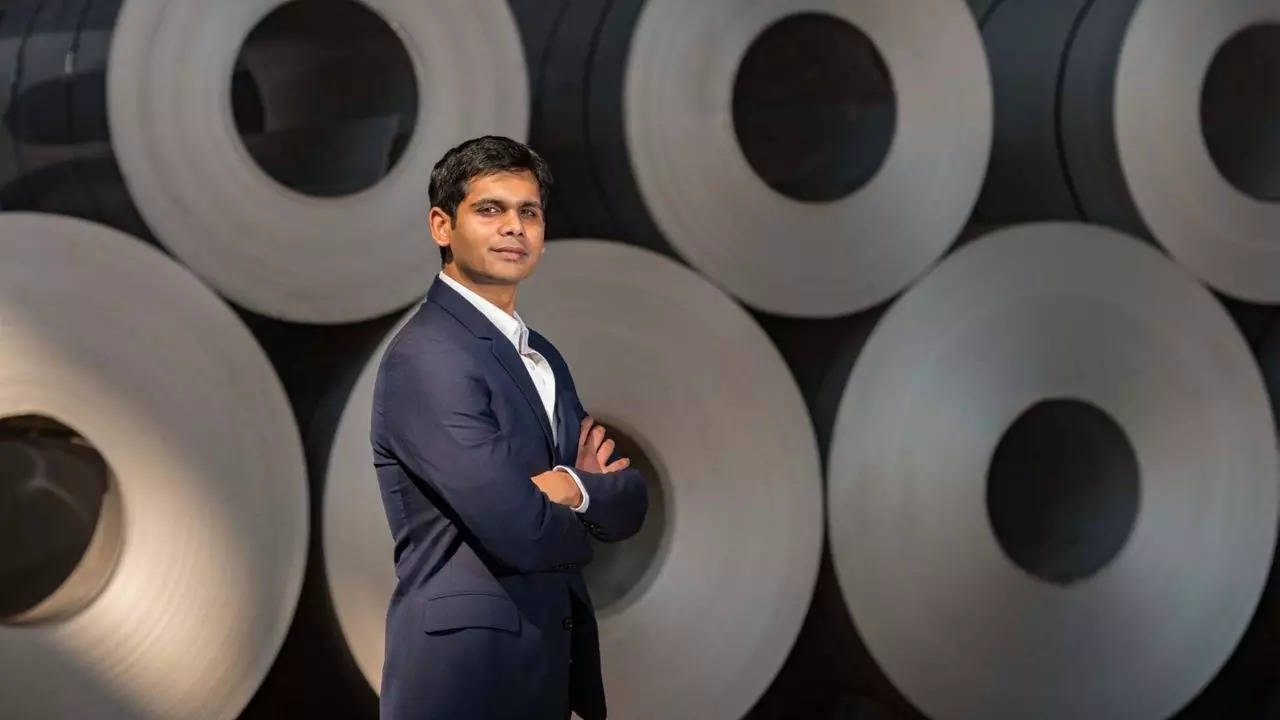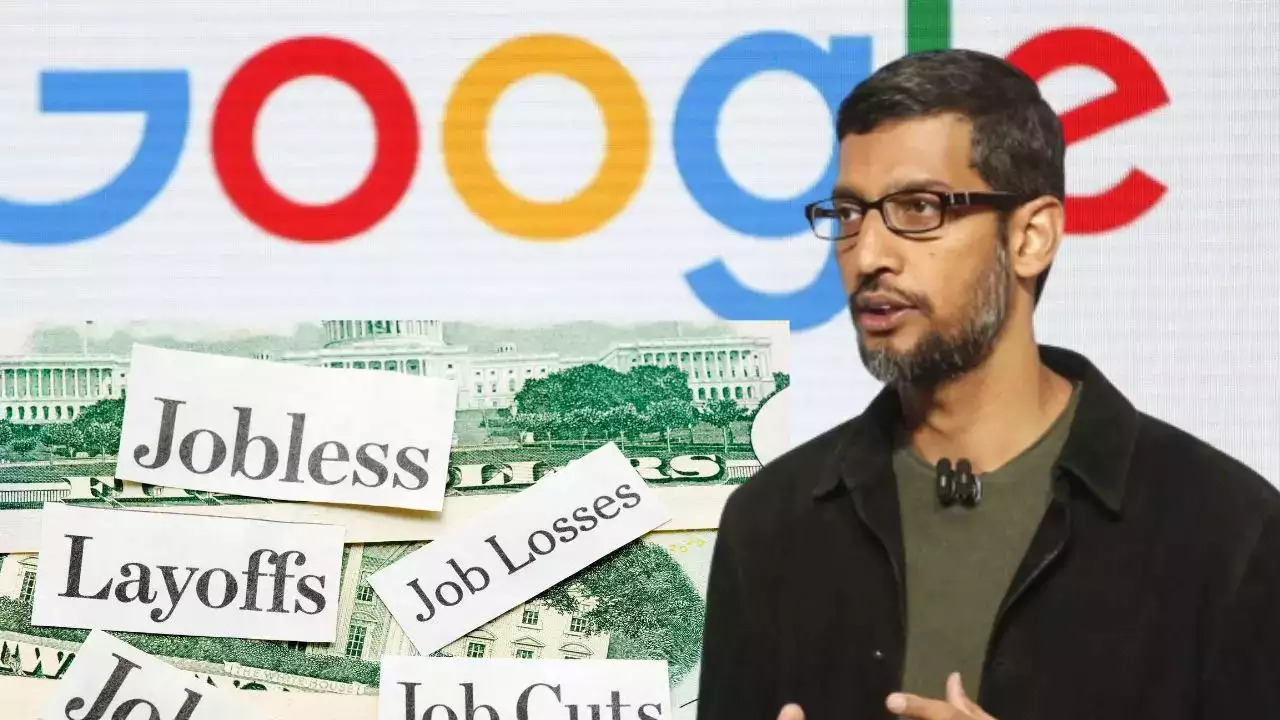

Narayana Murthy’s Father’s Wisdom (Image Source: Nikhil Kamath Clips)
Narayana Murthy, the iconic figure behind Infosys, traces his remarkable journey from hitchhiking through Eastern Europe to his current stature as a champion of compassionate capitalism. In a recent interview with Zerodha’s co-founder Nikhil Kamath, he shared insights into the personal transformation that underpins his worldview and the pivotal moments that shaped his beliefs.
Born into a modest household, Murthy credited his upbringing for instilling in him a strong work ethic and enduring values. Raised by hardworking parents who emphasised the importance of intelligence, hard work, and integrity, he imbibed these principles from an early age. The family dinners served as a forum for discussions on societal issues and the pursuit of a better future, planting the seeds for his later endeavors.
Murthy said, “The only time me and my parents sat together was at dinner. Father would talk about all the wonderful things happening during Nehru’s time, and he would tell us time and again, ‘Friend, the only escape you have from poverty is a little bit of smartness, a lot of hard work, and enduring value system.Those are the only three things that will take you from where are you today to betterment.”
Reflecting on his formative years, Murthy reminisces about his time backpacking across Europe, driven by a quest to gather firsthand experiences for his belief in compassionate capitalism. His journey took him through both Western and Eastern Europe, including countries under communist regimes like Russia, Israel, Iraq, Iran, and Afghanistan. Immersed in diverse cultures and socio-economic landscapes, he sought to validate his conviction that compassionate capitalism, coupled with free markets and entrepreneurship, held the key to alleviating poverty in India.
Despite the unpredictability of hitchhiking, Murthy found himself forging transient friendships with fellow travelers, sharing brief but meaningful moments on the road. Standing at gas stations, he would negotiate rides with passing drivers, often accompanied by strangers bound for the same destination.
Fast forward to the present, Murthy’s advocacy for compassionate capitalism has only grown stronger. Drawing from his experiences and observations, he remains steadfast in his belief that unbridled yet responsibly regulated entrepreneurship is the cornerstone of India’s development trajectory. With a nod to history, he underscores the failures of alternative models, citing the collapse of the Soviet Union as a cautionary tale.




























